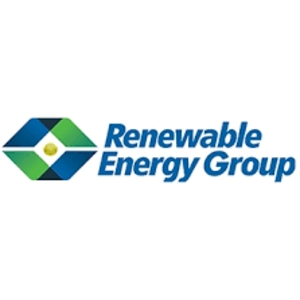REG invests in expanded low-carbon feedstock processing in Europe

February 17, 2022
BY Renewable Energy Group Inc.
Renewable Energy Group Inc. will install a state-of-the-art pretreatment facility in Germany, enabling the company to refine some of the lowest carbon intensity, hardest-to-convert waste fats and oils for bio-based diesel production. The project is located on the North Sea harbor of Emden, Germany, at the border to The Netherlands.
The project will enhance REG Emden and REG Oeding’s ability to produce renewable fuel from a wider variety of feedstocks, including ‘Generation 3’ advanced feedstocks as defined under the Renewable Energy Directive II. This strategic upgrade will enable the company to continue to expand the company’s strong global sourcing and trading position, produce more deeply decarbonized fuel and better serve European customers seeking to accelerate their transition to cleaner energy.
Advertisement
Advertisement
“This strategic investment expands our already wide selection of feedstock options that we run at Emden and Oeding today, and qualifies us to better serve the growing demand for low carbon fuel options in Europe,” said REG President & CEO, CJ Warner. “Upgrading our German production sites with our proprietary technology will position us well for the future, build on our supply assurance and empower us to further reduce the carbon intensity of the renewable fuels we produce.”
The RED II policy incentivizes waste and advanced feedstocks as Europe continues to emphasize decarbonization efforts. REG currently produces approximately 50 million gallons, or 167kMT per year of biodiesel at its two German biorefineries, delivering carbon reduction impact in Europe, notably with on-road transportation and maritime customers.
“REG will continue to build on our track record of delivering high quality fuels and being a trusted partner to waste producers seeking reliable offtake,” said REG VP and Managing Director, International Business, Raymond Richie. “As customers and suppliers demand more sustainable business practices, we are well positioned to play a key role in the circular supply chain.”
Advertisement
Advertisement
REG acquired the bio-based diesel plants in Germany in 2017 and has since opened a global trading office in Amsterdam for sourcing feedstocks and selling coproducts and fuels. REG has all required permits for construction and the project is expected to be completed in the second half of 2023 with startup by year-end. REG has selected BDI- BioEnergy International GmbH as the engineering, procurement and construction partner.
“With our innovative RetroFit programme, we are taking the two biodiesel plants to a completely new technical and economic level. The result is unique raw material flexibility, maximum plant availability and a measurably valuable contribution to the circular economy and CO2 reduction,” said Markus Dielacher, CEO BDI-BioEnergy International GmbH.
Related Stories
The USDA’s National Agricultural Statistics Service on June 30 released its annual Acreage report, estimating that 83.4 million acres of soybeans have been planted in the U.S. this year, down 4% when compared to 2024.
SAF Magazine and the Commercial Aviation Alternative Fuels Initiative announced the preliminary agenda for the North American SAF Conference and Expo, being held Sept. 22-24 at the Minneapolis Convention Center in Minneapolis, Minnesota.
Saipem has been awarded an EPC contract by Enilive for the expansion of the company’s biorefinery in Porto Marghera, near Venice. The project will boost total nameplate capacity and enable the production of SAF.
Global digital shipbuilder Incat Crowther announced on June 11 the company has been commissioned by Los Angeles operator Catalina Express to design a new low-emission, renewable diesel-powered passenger ferry.
Scientists at ORNL have developed a first-ever method of detecting ribonucleic acid, or RNA, inside plant cells using a technique that results in a visible fluorescent signal. The technology could help develop hardier bioenergy and food crops.
Upcoming Events










